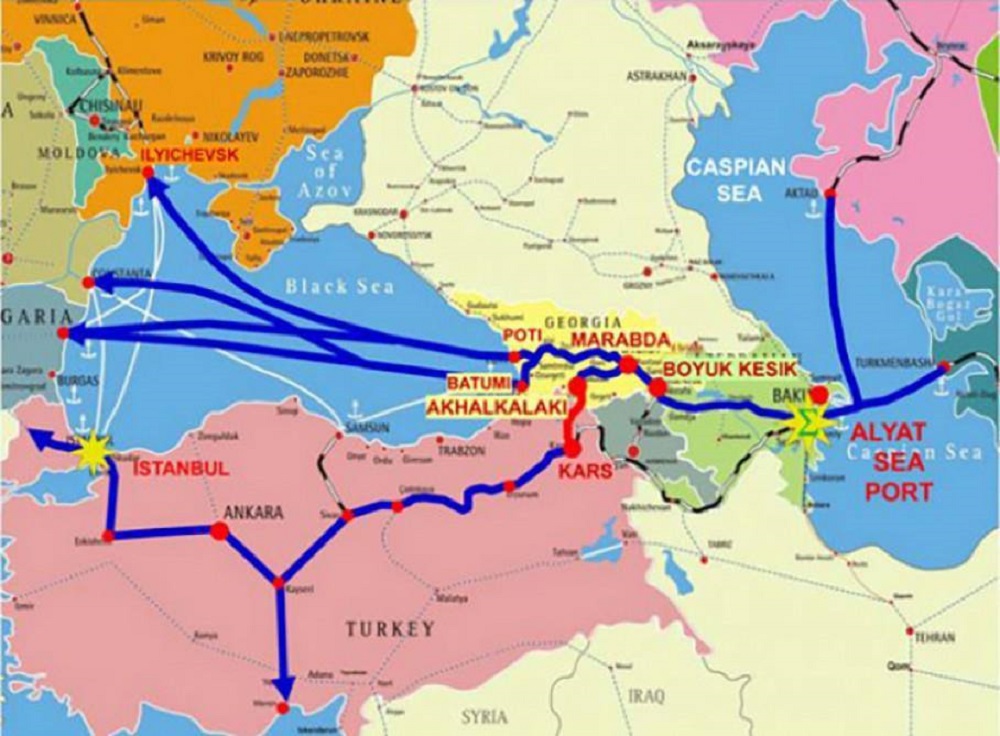
Parliamentary Elections in Georgia
Only nine days remain until the pivotal parliamentary elections in Georgia. The elections, set for October 26, will reveal not only which forces will form the new government but also whether the country will continue its commitment to European integration, a path it has followed for twenty years, or shift its focus northward. The results of these elections will also affect the entire region, including Azerbaijan.
Analysts at the South Caucasus Research Center (CSSC) believe that regardless of the election outcomes and which forces come to power, Azerbaijan and Turkey must enhance their cooperation with Georgia in a trilateral format and assist it in preventing potential threats.
- “We are unequivocally expressing concern about the processes in Georgia” – U.S. Ambassador to NATO
- “A meeting for the sake of a meeting”: Armenian political analyst on the “3+3” talks in Istanbul
- Dark days for Azerbaijan’s cotton: “High costs, low subsidies, insufficient profit”
The Azerbaijani edition of JAMnews presents an analysis from the South Caucasus Research Center (CSSC) on the impact of the upcoming parliamentary elections in Georgia on the region:
“The upcoming parliamentary elections in Georgia are already characterized as ‘geopolitical elections,’ as the foreign policy vector has become the central theme of the electoral discourse and currently underpins the existing polarization within society.
Certainly, the responsibility for the current situation lies primarily with the country’s government, both past and present. In Georgia, there have traditionally been insufficient barriers against foreign interference in domestic affairs. As a result of the activities of these foreign forces, there are now significant divisions within Georgian society regarding the country’s future direction.
For nearly two decades, a geopolitical status quo has been established in the South Caucasus. Georgia has developed cooperation with the European Union and NATO, turning towards the West. In accordance with the terms of its strategic alliance with Russia, Armenia has oriented itself towards integration into institutions like the CSTO and EAEU. As a leading member of the Non-Aligned Movement, Azerbaijan has always preferred to conduct an independent policy.
However, in the past two years, the geopolitical status quo in the region has been disrupted by global processes. Armenia’s relations with Russia and Georgia’s relations with the West have deteriorated.
On the other hand, since the onset of the Ukrainian conflict, international attention to the South Caucasus has increased. Both regional neighbors and global power centers have clearly expressed their intention to engage in transformations within the South Caucasus.
Against this backdrop, trilateral cooperation between Azerbaijan, Turkey, and Georgia has already proven to be the most resilient format of cooperation in the region. The foundation of this cooperation is bolstered by large-scale economic projects. Current collaboration among the three countries is based on the principles of equal partnership, mutual benefit, and common interests. For these reasons, this format holds significant weight in understanding the geopolitical importance of the South Caucasus today.
In such circumstances, the current situation in Georgia is also very important for Azerbaijan. The main reasons for the effectiveness of the Azerbaijan-Turkey-Georgia trilateral cooperation format are that joint actions are based on the independent steps of all three states, grounded in national interests and stemming from natural needs. Therefore, it is crucial that the new government formed in Georgia after the parliamentary elections aligns with these criteria.
Among the most undesirable scenarios is the possibility of official Tbilisi falling under the influence of any foreign power and turning Georgian territory into a battlefield for geopolitical power centers. In such a case, regardless of the election results and which forces come to power, Azerbaijan and Turkey must strengthen their cooperation with Georgia in a trilateral format and assist it in preventing potential threats to the country.”


